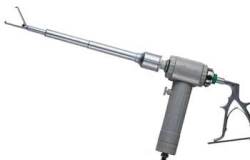Top Class Actions’s website and social media posts use affiliate links. If you make a purchase using such links, we may receive a commission, but it will not result in any additional charges to you. Please review our Affiliate Link Disclosure for more information.

Morcellation is a surgical procedure wherein surgeons cut up tissue or organs before removing it from the body during laparoscopic surgery. Morcellation is necessary for certain types of cutting-edge surgery.
In laparoscopic surgery, surgeons use special cameras and specialized tools to perform the bulk of the surgery within the patient’s body. This allows surgeons to cut through less healthy tissue and use smaller incisions than traditional surgery, potentially reducing complications and recovery times.
However, several sources, including the U.S. Food and Drug Administration (FDA) and peer-reviewed medical publications, have suggested that power morcellators may encourage the spread of aggressive uterine cancer throughout the body.
One procedure that uses morcellation is the removal of the uterus via laparoscopic surgery, called a laparoscopic or robot hysterectomy. This procedure is sometimes performed to remove a uterus with noncancerous growths.
However, FDA investigators and epidemiological studies have estimated that some women with these benign growths also have aggressive cancers like leiomyosarcoma bound up in their uterine tissue. Power morcellators may “liberate” these cells when they cut through uterine tissue, letting the cancer spread more easily throughout the body.
Different sources vary on how common this is, but it is significant that the FDA has advised against using power morcellators while they study the data more closely and Johnson & Johnson, the makers of a power morcellator has voluntarily pulled their own model from the market as a precaution.
On Oct. 3, Pennsylvania Sen. Bob Casey sent a letter to the commissioner of the FDA urging more expeditious handling of the issue. This has followed a joint letter by New York Senators Kristen Gilibrand and Chuck Schumer.
According to Casey’s letter, he has received complaints from his constituents saying that they have experienced aggressive cancers spread throughout their abdomens after robotic hysterectomies.
The Pennsylvania lawmaker also acknowledges that Johnson & Johnson pulled its market-leading power morcellator from the market, and that Highmark, an insurance company, has refused to cover the procedures in Pennsylvania due to concerns of aggravating latent cancers.
While Casey acknowledges the FDA’s recent Safety Communications discouraging the use of power morcellators, he urges stronger, more decisive action from the FDA.
A morcellation cancer class action lawsuit has been launched to explore the possibility of legal action over alleged instances of morcellation cancer. Such a lawsuit could allege that the makers of power morcellators were aware — or reasonably should have been aware — of the serious risks associated with their medical tools.
Such a morcellation cancer lawsuit could seek compensation for medical costs, pain and suffering, legal fees, and other costs stemming from alleged morcellation cancers.
Do YOU have a legal claim? Fill out the form on this page now for a free, immediate, and confidential case evaluation. The morcellation cancer attorneys who work with Top Class Actions will contact you if you qualify to let you know if an individual lawsuit or class action lawsuit is best for you. [In general, morcellator cancer lawsuits are filed individually by each plaintiff and are not class actions.] Hurry — statutes of limitations may apply.
ATTORNEY ADVERTISING
Top Class Actions is a Proud Member of the American Bar Association
LEGAL INFORMATION IS NOT LEGAL ADVICE
Top Class Actions Legal Statement
©2008 – 2024 Top Class Actions® LLC
Various Trademarks held by their respective owners
This website is not intended for viewing or usage by European Union citizens.
Get Help – It’s Free
Join a Free Morcellation Cancer Class Action Lawsuit Investigation
If you or a loved one were diagnosed with cancer in the uterus, pelvis or abdomen within two years of undergoing surgery for a myomectomy (removal of fibroids), hysterectomy (removal of the uterus), oophorectomy (removal of the ovaries), or salpingectomy (removal of fallopian tubes), you may have a legal claim. See if you qualify by filling out the short form below.
An attorney will contact you if you qualify to discuss the details of your potential case at no charge to you.
Oops! We could not locate your form.












